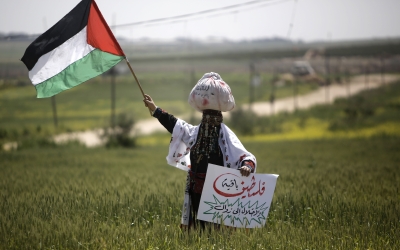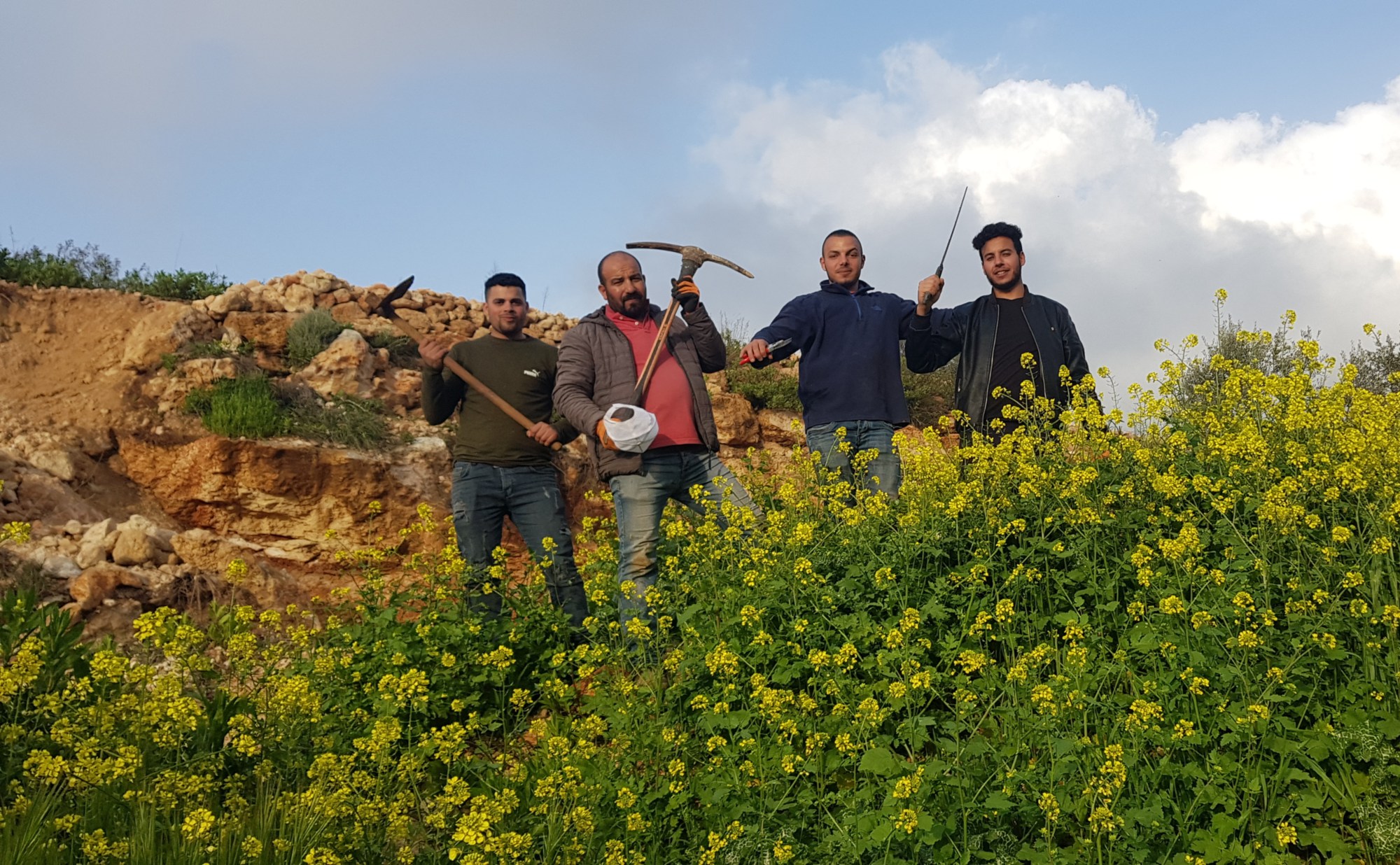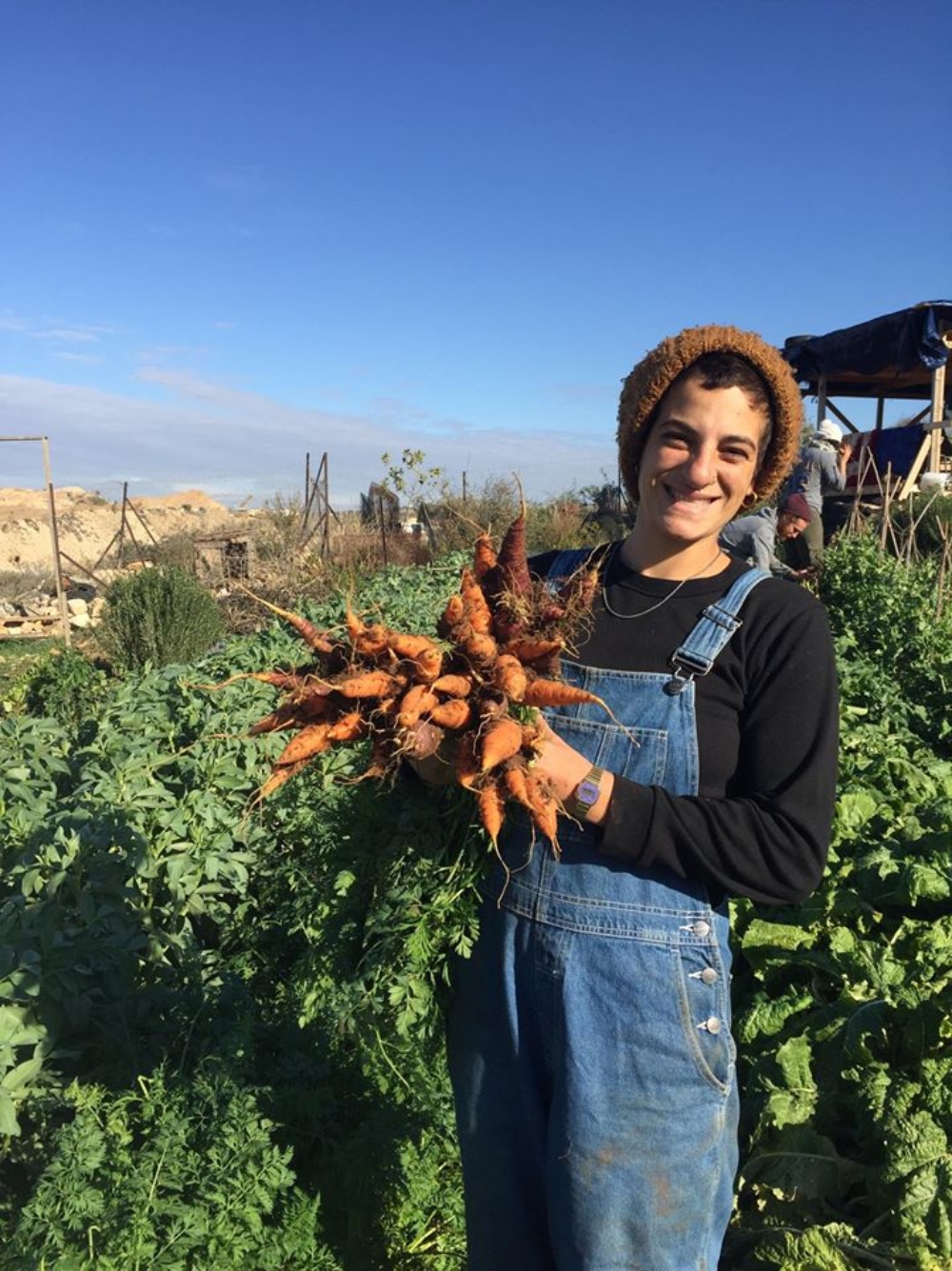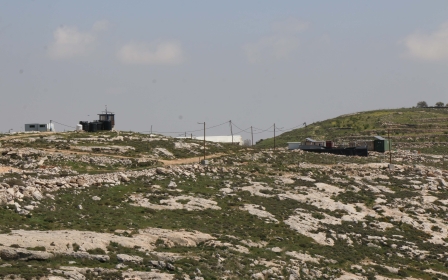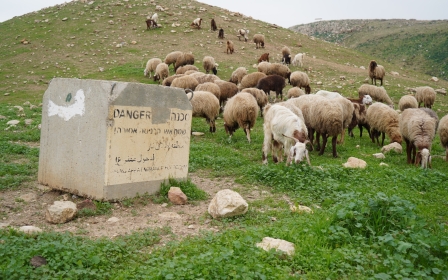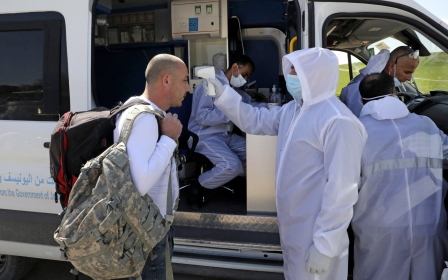Coronavirus: For Palestinian wildlife, pandemic may be 'blessing in disguise'
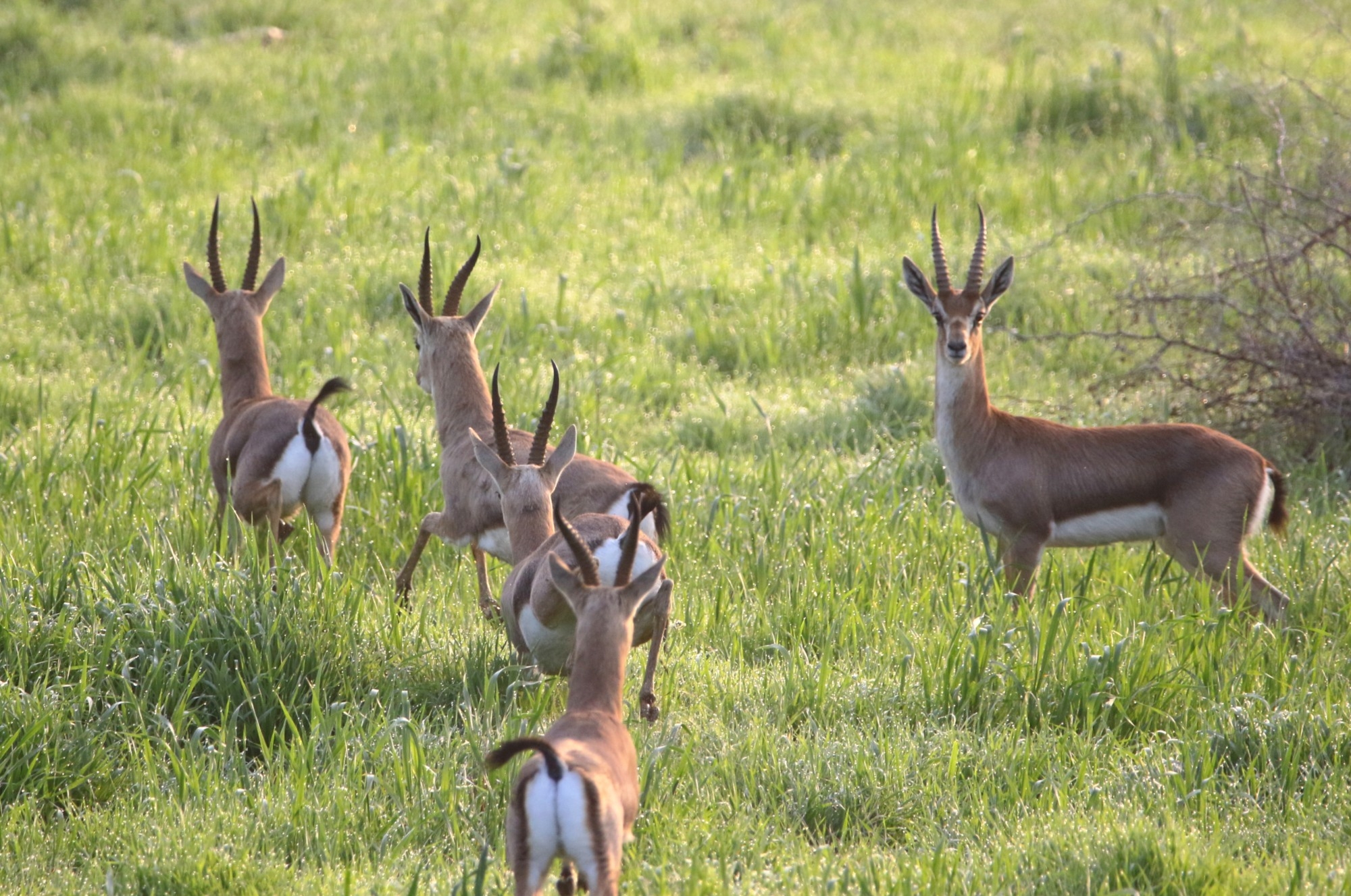
The coronavirus pandemic has seen much of the world grind to a halt, as the toll of the virus keeps rising and governments globally enact ever more stringent measures to halt the spread of the disease.
But when Imad Atrash looks through the windows of his home in the occupied West Bank, he sees an unexpected silver lining.
New MEE newsletter: Jerusalem Dispatch
Sign up to get the latest insights and analysis on Israel-Palestine, alongside Turkey Unpacked and other MEE newsletters
“Birds have begun nesting on trees in my backyard for the first time,” said the executive director of the Palestine Wildlife Society in Bethlehem. “Due to home quarantine, we have begun to notice the presence of wild animals such as foxes and jackals close to residents’ homes without fear.”
After the Covid-19 outbreak in China was tied in some circles to wild animals such as bats and pangolins, Beijing imposed a "comprehensive ban" on the trade and consumption of them. The World Health Organisation has also warned against dealing with wild animals due to the potential transmission of the coronavirus or other diseases from animals to humans.
In the occupied Palestinian territories, 171 cases of Covid-19 have been officially recorded as of Friday, with at least one patient dying from the disease.
Meanwhile, government curfews have led millions to stay confined in their homes for weeks in order to slow the transmission of the virus.
But for Atrash - and other Palestinian environmental activists - the lockdowns have also provided “a blessing in disguise”, as the pandemic has led to drastic changes in people's relationships with nature.
Wildlife returns
Every spring, many Palestinians go to the wilderness and the mountains in the occupied territories to collect edible wild plants and birds' eggs or to hunt wild animals.
But this year, quarantines and movement restrictions have essentially halted such activities.
And Atrash hopes that the human lockdown could have the unexpected consequence of helping to save the Palestinian mountain gazelle.
Numbering 1,500 in the occupied West Bank in 2000, only an estimated 300 to 350 gazelles remain today, leading the International Union for the Conservation of Nature (IUCN) to add the Palestinian gazelle to the red list of threatened species.
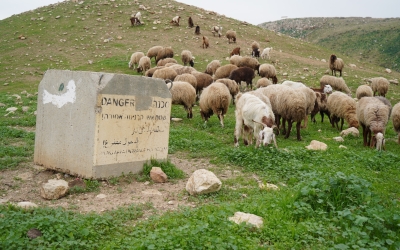
But, according to Said Ayman Abudahir, director general of environmental education and awareness at the Palestine Environment Quality Authority, “due to domestic quarantine, poaching has decreased dramatically”.
Meanwhile, wild plants that had been on the verge of extinction, as laws and executive regulations hadn't succeeded in protecting them from the effects of over-cultivation, have grown freely and more abundantly than in the past.
“The effect of home quarantine has had a positive influence on remote areas and public parks such as the Wadi Qana Valley, Ain Alsakout and the Jordan Valley in general,” Saeed Abu Limon, a Palestinian environmental activist from Jenin in the northern West Bank, told MEE.
The trends observed by Palestinian environmentalists match global observations on the ecological impact of mass reductions in human activity. Since the beginning of the outbreak, scientists have registered a significant decrease in air pollution levels in all areas of the world affected by lockdowns, including Palestine.
Carbon monoxide and CO2 emissions have fallen by nearly 50 percent compared with last year, according to researchers at Columbia University.
Return to the land
The locally sourced food industry has also reaped unexpected benefits from the social distancing orders in Palestine.
Due to the decades-long Israeli policies cutting Palestinians off from their land, thousands of Palestinians over the years have eschewed cultivating their holdings, turning instead to other employment opportunities in Israel or settlements in construction or food production - at the expense of Palestinian food security
Now, due to the coronavirus outbreak in Israel - where more than 7,000 cases and at least 36 deaths have been recorded - and severe restrictions on movement, hundreds of Palestinian workers have returned to make a living in their home towns.
Some have seized the opportunity to return to the fields and produce vegetables - particularly as the coronavirus pandemic has ignited fears over the possible impact on food security and production.
Yousef Qadah is a Palestinian worker from the central West Bank village of Shuqba, who had been working in the construction sector in Israel. Due to the coronavirus outbreak, he quit his work and started cultivating his farm in his home town, planting almond and olive trees, aubergines, tomatoes and cucumbers.
”I found my real life in agriculture and caring for the land,” he told MEE. “The fruit of my land tastes different and more delicious.”
Even young Palestinians holding other jobs in the occupied Palestinian territory have found themselves increasingly turning to gardening in their lands or backyards - including Murad Sartawi.
Sartawi, a resident of the West Bank village of Sarta in the Salfit governorate, owns a store selling spare parts. But since the quarantine and curfew, he has invested more time and energy into cultivating his farm and planting vegetables to harvest for the summer.
“One of the benefits of home quarantine is the fact that I don’t interact with people, but I stay on my farm working, spending the whole time rehabilitating my land, which I did not have enough time to work on before,” he told MEE.
Sartawi added that many of his relatives and friends have followed suit.
Moving from urban areas to the countryside seems to be a new phenomenon in Palestine due to the coronavirus.
Yara Dowani decided to leave her city home and move to a farm in the countryside full time upon hearing about the quarantine and restrictions of movement.
“We prefer to be locked down in our farm, rather than in our apartments in the city,” Dowani told MEE.
Dowani works at Om Sleiman, a community-supported agricultural farm established in 2016 by Mohammed Abu Jayyab, from the besieged Gaza Strip, and Muhab Alami, a Jerusalem native.
The farm is built on lands belonging to the village of Bilin, west of Ramallah, and offers organic fresh produce directly to subscribing clients on a weekly basis.
"During the coronavirus quarantine we have been more productive and focused on trying to make the farm more suitable for living,” Dowani said. “Despite the lack of electricity and hot water, we are focusing on the bright side, which is being more connected and fully here on the farm.”
But while Palestinian environmentalists have rejoiced at the unintentional yet positive consequences of the pandemic, the Israeli occupation remains - and with it policies seeking to expropriate Palestinians' property.
Since the coronavirus emerged, detention raids, punitive home demolitions and settler attacks have continued unabated.
Yet Dowani remains determined that Palestinian efforts to maintain nurturing and beneficial relationships with the environment remain more important than ever.
“During these uncertain times we believe that, now more than ever, small farms like Om Sleiman should shine as a sustainable economic model that doesn’t get affected by the capitalist and consumerist system,” Dowani said.
This article is available in French on Middle East Eye French edition.
Middle East Eye delivers independent and unrivalled coverage and analysis of the Middle East, North Africa and beyond. To learn more about republishing this content and the associated fees, please fill out this form. More about MEE can be found here.


